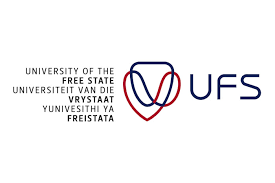Consistency, Continuation In Learning Proves That One Is Never Too Old For Qualification
While prospective students are looking forward to starting their tertiary education, a few older, more experienced graduates who have been capped at the December 2022 graduation ceremonies, prove that you are never too old to get an extra qualification.
In the words of the legendary entrepreneur and industrial designer, Steve Jobs: “There is always one more thing to learn.” Cherene Pienaar (age 38), a journalist and second-year master’s degree student in Creative Writing at the University of the Free State (UFS), agrees: “I want to make the most of my time on earth and grow personally.”
Success depends on continuous learning
“Upskilling and re-skilling through continuous learning is no longer a luxury. It is a survival strategy,” says Belinda Janeke, Head of Career Services in the Division of Student Affairs. She says contexts of traditional vocations are changing with the inclusion of technology. “Apart from staying relevant, the biological and psychological benefits of learning are also scientifically backed; an active mind is good for you.”
Shirly Hyland, Director of the Kovsie Phahamisa Academy (KPHA) for Short Learning Programmes (SLP), says lifelong learning builds skills and knowledge and enhances the social inclusion, active citizenship, and personal development of individuals. “Even if SLPs may not necessarily lead to a formal Higher Education Qualifications Sub-Framework (HEQSF) qualification, it places lifelong learners at a competitive edge for employability. Persons who engage in lifelong learning are at the forefront of their profession and remain competitive.”
Staying and being relevant
Participants enrolling for an SLP can rest assured, knowing that course material is fresh and relevant, as the KPHA embarks on a desktop study to determine the relevance, marketability, and competitiveness before a suggested SLP gets approved. Hyland says the UFS offers SLPs that are purposeful and in time for the needs of the relevant profession, industry, or society. Programmes are offered at affordable prices and encompass the top academic expertise at the UFS. “Every SLP gets created for professional development, professionals wishing to re-skill themselves to remain current and competitive, or young adults who wish to upskill themselves to become (more) employable.”
Different options available
Hyland explains that lifelong learning can take on different formats, allowing innovation in content, design, offering, and delivery. “The traditional classroom is no longer the foundation of learning. SLPs allow people from all walks of life access to part-time, relevant, flexible, and affordable education.”
Advantages of studying later in life
Janeke says older students may be more motivated and focused than 18-year-olds. “Most 18-year-olds experience vocation uncertainty. The pressure to pick a degree can cause them to study what others prefer, only to realise where their true passion lies later in life.” In contrast, older students bring experience, wisdom, and understanding to a programme. “They have often seen theory play out in practice and have a better view of abstract concepts and ideas. Due to their experience, they excel in a programme application or practical components.”
The UFS Career Services is like a finishing school for career readiness and offers a self-paced programme that covers self-knowledge and career exploration. “During the programme, students do an in-depth career exploration to ensure that their skills, values, and interests align with market offerings. A gap analysis helps them to obtain the skills they need, and a deep dive into career possibilities reveals different opportunities instead of being stuck on a one-track approach.” Janeke says their workshops and events focus on employability and connecting students with potential employers. “We have found that students need more than a qualification to contribute to the workspace. We aim to ensure that they will become employees of choice.”
What it takes
Hyland advises participants to be committed to the programme in order to be successful in any SLP. “Participants should ensure the SLP adds value to their lives – professionally and/or personally.” Other tips include reading documentation thoroughly, sticking to timelines provided, and keeping communication lines open with the programme owner when troubles arise.
Although financial constraints or family responsibilities may prevent (further) studies initially, these challenges can be overcome. “Once these barriers are removed, people may pursue their career dreams. Furthering one’s studies will provide more than knowledge and skills.” Janeke advises prospective students to set aside a place and time for studies, create a support network and accountability group, and develop healthy habits. “If your studies are self-funded, budget your study and household costs – and pick your programme wisely.”
Pienaar says getting an extra degree is possible despite having a full-time job, but it is probably more challenging when you have a family. “To pass on postgraduate level is still a job well done.”

